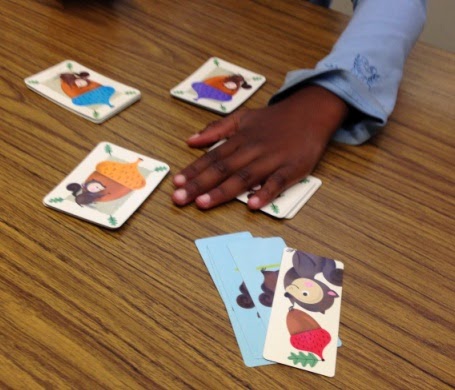 |
| Get it here. |
 |
| Slap the matching acorn card. |
This game emphasizes a student's vigilance and reaction speed. Players have to pay close attention to what cards are being drawn and be the quickest to touch the matching color. I had several students attempt to "hover" their hands over the acorn cards, which offered a great opportunity to talk about why this might be considered cheating. In order to increase students' impulse control during this game, I implemented the rule that if they slapped the wrong card, or slapped when a "Sneaky" card was being dealt, they would have to return an acorn card from their pile.
This game is great for Speech because the turns are very quick -- which is important when playing a game during articulation drills or when in large therapy groups. You could even have students complete different tasks for differently colored acorns. For example, for each yellow acorn, students practice their target word 5 times, for each red acorn they practice 10 times, etc. This would also be a great game for students working on /s/-blends ("sneaky," "snacky," "squirrel").
Stay posted! In the next few days I will be reviewing my very favorite game of all the samples I received!
~Viola

No comments:
Post a Comment